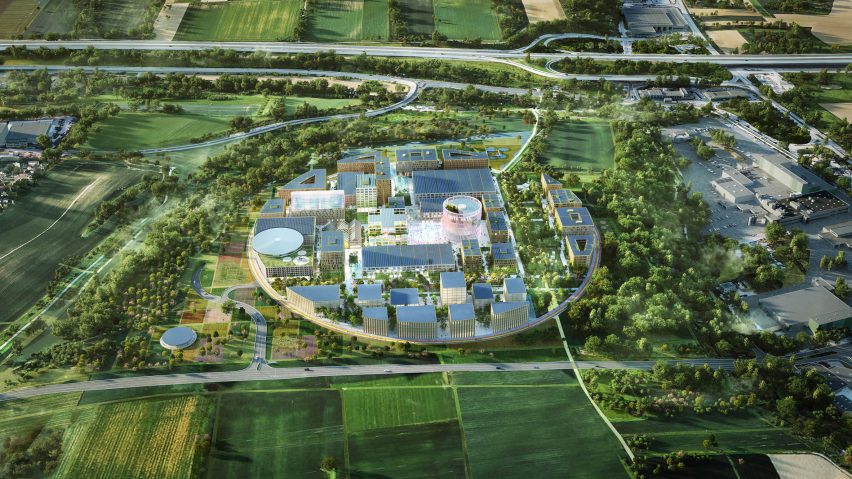
MVRDV designs German AI hub to be "visible in satellite photos"
Dutch studio MVRDV has released visuals of the Innovation Park Artificial Intelligence, a circular masterplan for a technology and innovation hub in Heilbronn, Germany.
The 265,000 square-metre Innovation Park Artificial Intelligence (Ipai) campus is hoped to become a global landmark dedicated to the development of "ethically responsible" artificial intelligence (AI).
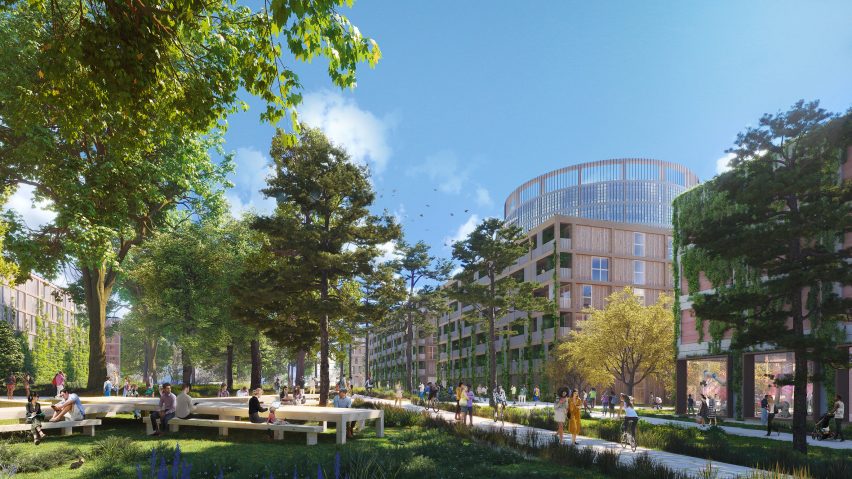
MVRDV's proposal is characterised by its circular plan, which is intended to be easily recognisable and will include a mix of workspaces, laboratories and a centre for start-ups.
It will also provide housing, a restaurant and a kindergarten, ensuring the district can become "an attractive place to work, but also a destination for curious visitors", the studio said.
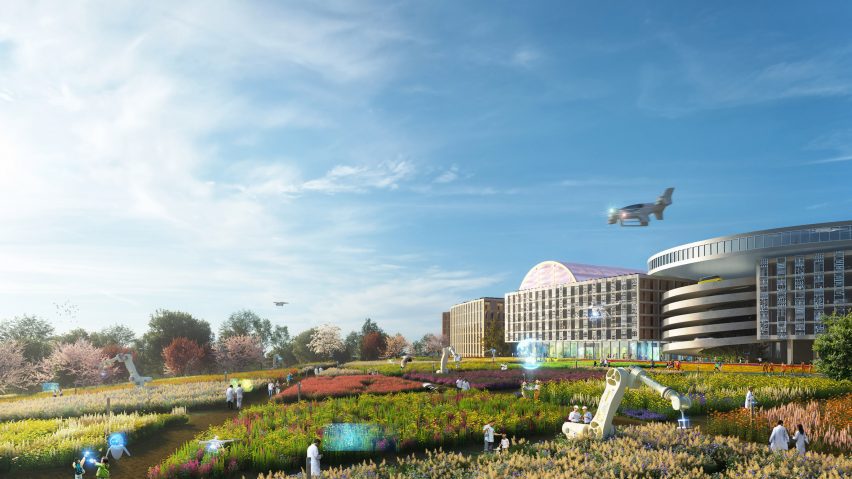
"The developments we have seen recently in the field of AI demand the attention of people from all walks of life, and with this design, we create a compact campus for this to happen," said MVRDV founding partner Jacob van Rijs.
"The striking form of the campus can help to propel it to an international stage, attracting world-class talent. Meanwhile, the welcoming and engaging atmosphere, even the recognisable appearance, make this place a destination where people can engage in the future of this technology."
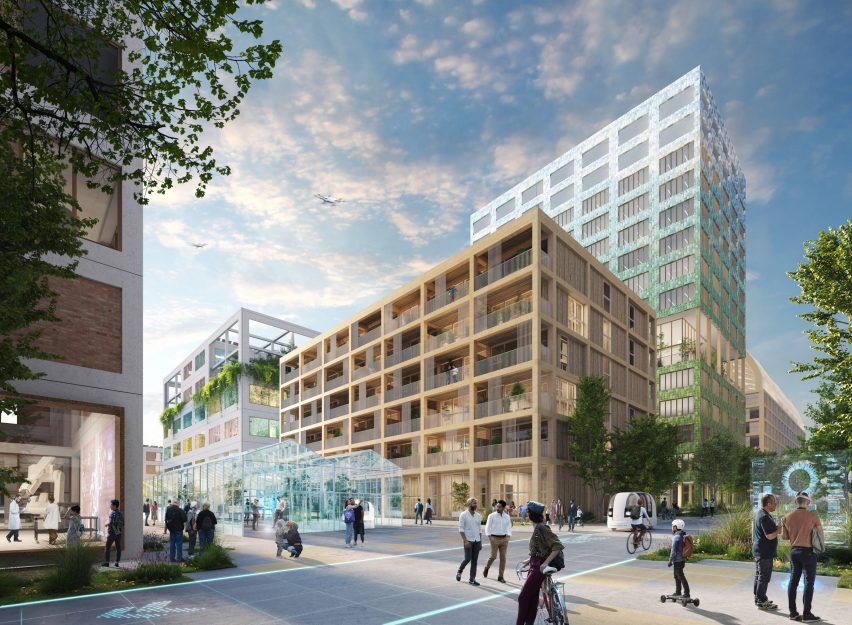
Ipai was commissioned by the Ipai Consortium, a group consisting of the charity Dieter Schwarz Foundation, the city of Heilbronn and the retail company Schwarz Group.
According to MVRDV, it was born out of the consortium's ambition to create a reputable tech hub that could compete with the likes of Silicon Valley.
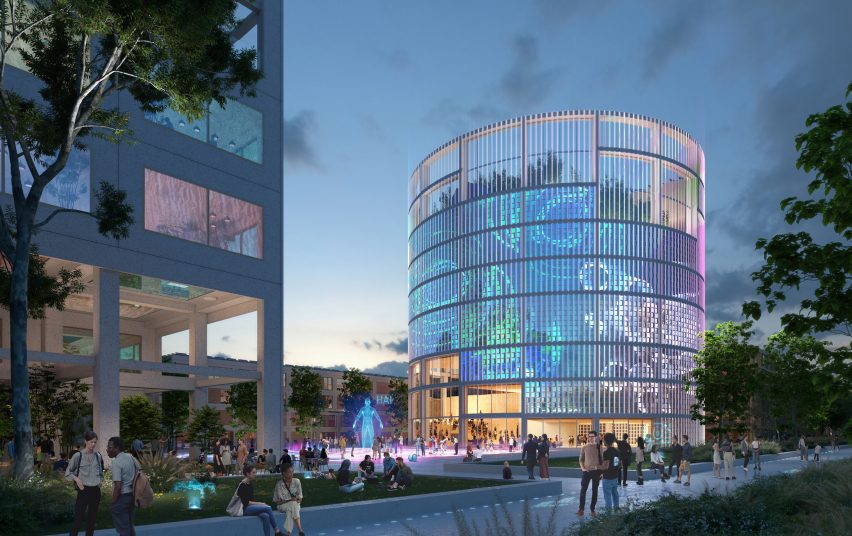
Ipai's characteristic circular form, which MVRDV hopes will be "visible in satellite photos", will also be used as a symbol across the campus' branding.
The majority of buildings in the district will have rectangular forms, modular structures and a height of 27 metres to ensure quick construction.
These will surround a series of "iconic forms" – taller and more unique buildings at the centre of the plan – which MVRDV hopes will define the district's skyline.
Among these one-off buildings will be the communications and visitor centre, which will take the form of a round tower and sit on a central plaza. Designed with the placemaking studio Realace, it will include spaces for events, exhibitions and conferences, all aimed at educating the public about AI.
The masterplan will be broken up by two off-centre axes. One will run north to south, while the second will stretch east to west.
Another key circulation route will be a 1.2-kilometre-long path that will wrap around the outside of the campus and incorporate facilities including a track, a skate park and viewpoints.
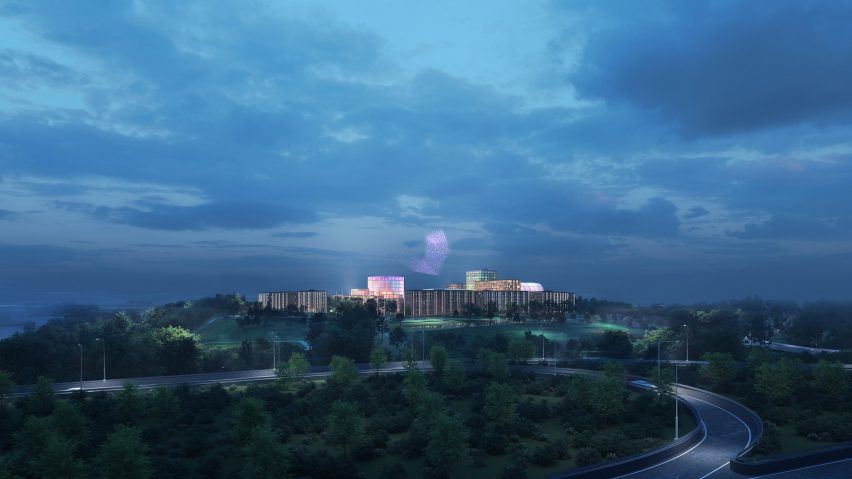
The landscape design will see the transformation of existing grassland into forests and orchards, which MVRDV said will "serve as test-beds for biodiversity- and agriculture-related AI technology".
Other details of Ipai include renewable energy systems such as wind turbines and solar panels.
MVRDV is an architecture studio founded in 1991 by van Rijs, Winy Maas and Nathalie de Vries.
Other recent projects by the studio include a Tainan food market that is topped with "rolling hills" and a hill-like housing complex in France.
The visuals are by MVRDV.
Project credits:
Architect: MVRDV
Founding partner in charge: Jacob van Rijs
Directors: Enno Zuidema, Sven Thorissen
Design team: Koch, Maria Cirrincione, Klaas Hofman, Chun Hoi Hui, Marta Iglesias Rando, Nikos Margaritis, Pietro Marziali, Carolina Geise, Katarina Jovic, Anastasia Voutsa, Aleksandra Domian, Bartosz Kobylakiewicz, Dirco Kok, Hanie Norouzzadeh, Loes Bekkers, Luisa Correa de Oliveira, Petar Kukec, Jasmin Dieterle-Proesel, Josua Hefti, Marta Janowska, Ruben Epping, Zhijia Xiong
MVRDV climate: Arjen Ketting, Kristina Knauf
Visualisations: Antonio Luca Coco, Angelo LaDelfa, Luana La Martina, Marco Fabri, Luis Moreno Perona, Ciprian Buzdugan
Strategy and development: Lennaart Sirag
Landscape: Lola Landscape Architects
Mobility, sustainability, and structural engineering: Thornton Tomasetti
Biodiveristy: Studio Animal-Aided Design
Placemaking: Realace
Noise control: Peutz Consult
Fire protection: Gruner Deutschland